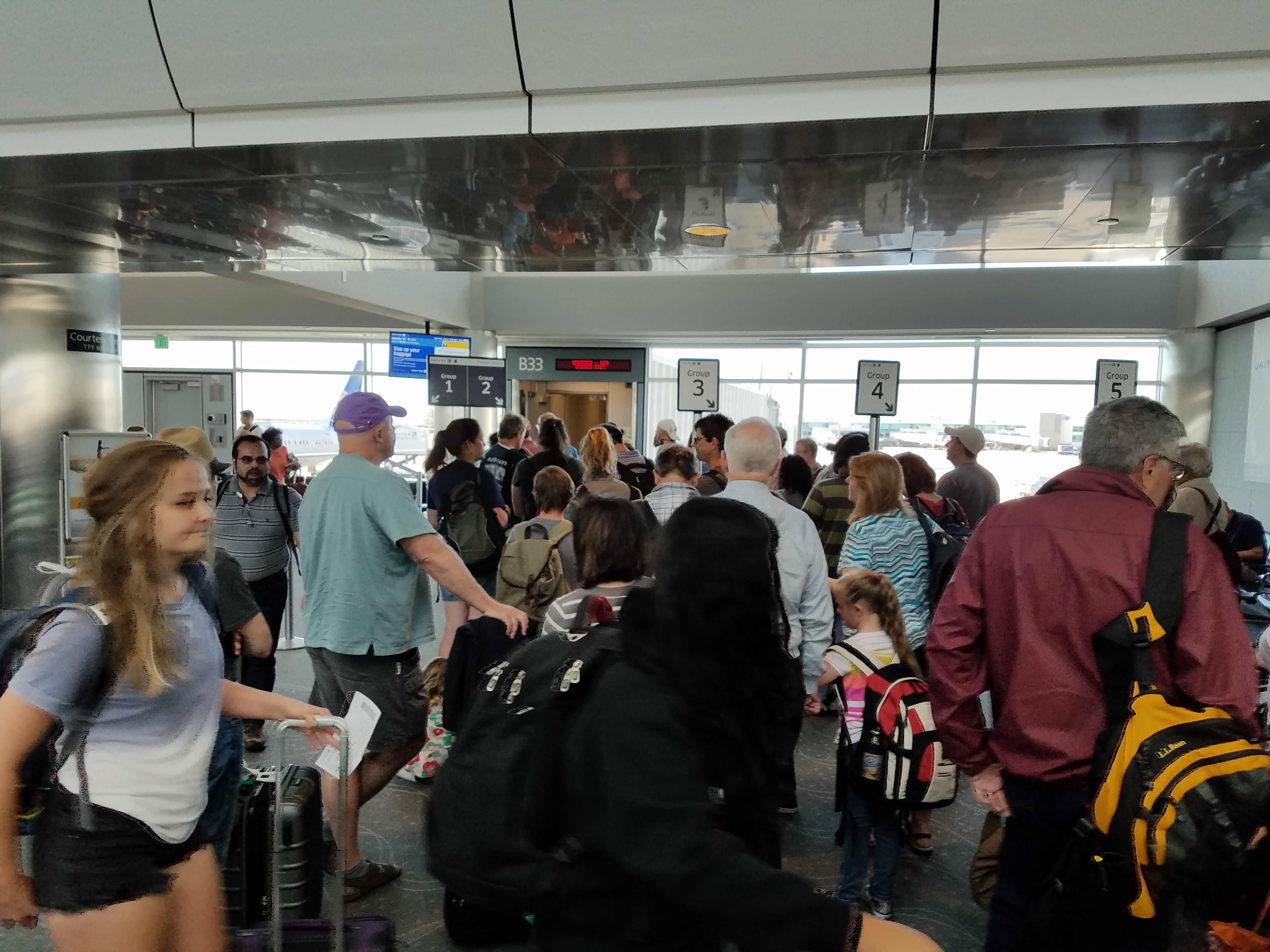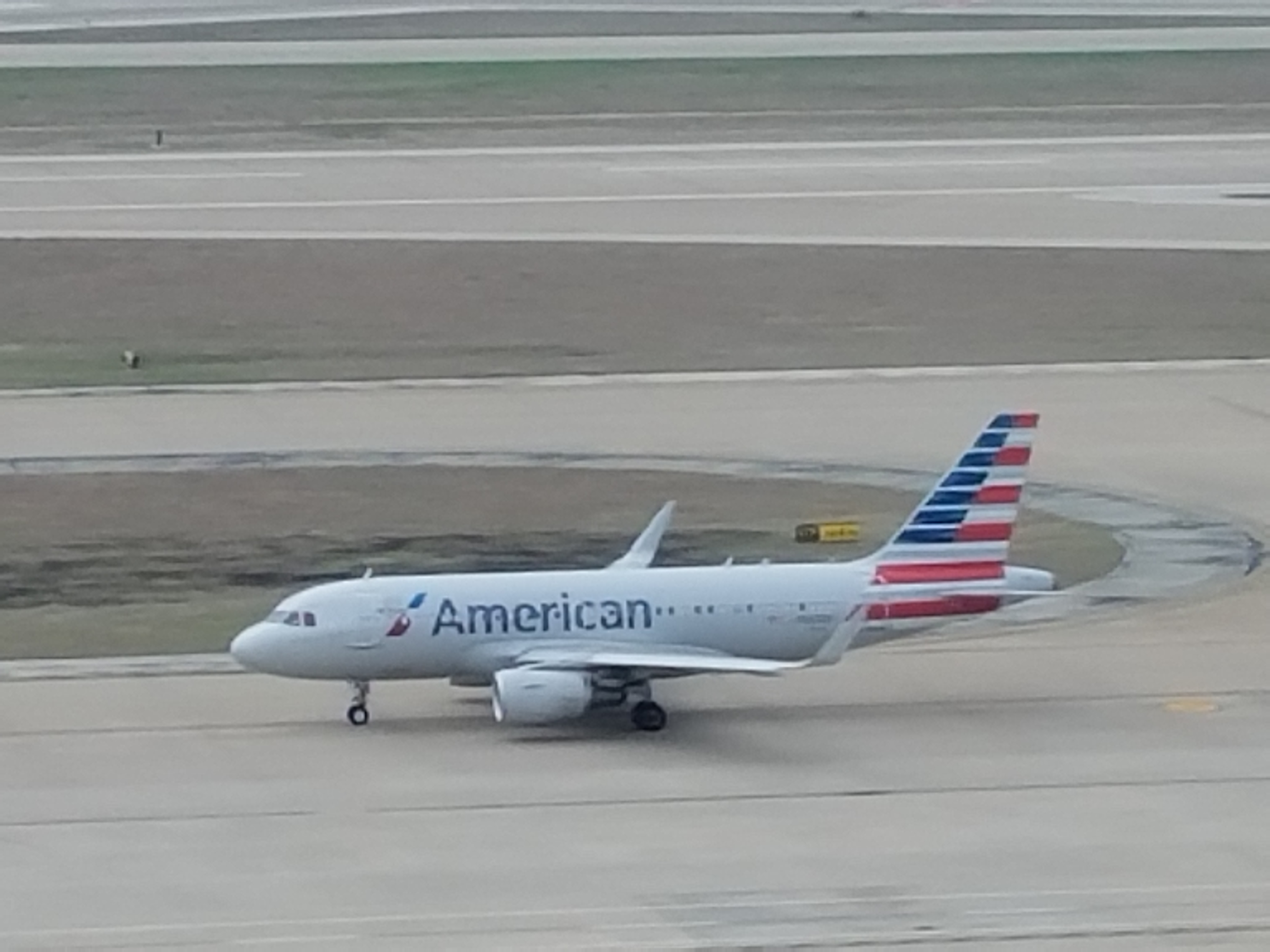United Airlines President Scott Kirby says people only care about price and that is why the airline offers such a bad product. Customers say they want a better product but whenever given the choice they choose the cheaper price.
Southwest Airlines of course offers more legroom and lower fees and has an outsized stock valuation. So maybe the key to building a valuable company isn’t nickel and diming passengers but delivering them the fair value they’re looking for.

But the entire point of Delta, American, and United introducing Basic Economy fares — and in particular Kirby’s innovation first as President of American Airlines and then as President of United to deny passengers on those fares bringing a rollaboard bag onboard (and in United’s case even denying online check-in to Basic Economy passengers not checking a bag) — is to make the product so unpleasant that customers won’t buy it, and hopefully spend more with the airline, rather than with a different airline like Southwest or Jetblue, instead.
- In other words the Basic Economy strategy is to get customers to choose their airline product on something other than the basis of price.
- And both United and American have claimed that about 50% of passengers do buy up — choosing product over price. (Leave aside for a moment those who are booking away entirely and choosing another airline without Basic Economy restrictions.)
- Which means — contrary to conventional wisdom — that they do not care only about price.

For a long time I suggested that, along the lines of Kirby, it made sense to match the lowest fares offered by ultra-low cost carriers. After all those fares are generally still higher than marginal cost, so if the airline is doing their job properly in revenue management (and only selling seats at these fares that would have gone empty otherwise) they make money.
However I’m increasingly of the mind that it’s a mistake for the big legacy carriers to be pricing themselves like Spirit Airlines in the first place, followed by offering the same inferior inflight product. They’re never going to have the low cost structure that Spirit has. In order to make money they need to earn a revenue premium, and they can only do that with a product customers actually want to buy.
United and American should be promoting a better product, rather than reinforcing a brand that says they do not have a better product to offer.


Scott Kirby is wrong. If I had the option of two airlines (one with comfortable seats and better amenities versus one that was uncomfortable and cheaper) I would definitely pay a reasonable surcharge for the better and more comfortable option especially if the flight was over 2 hours. I was a 1K for more than a decade and now I barely even fly United because I can’t stand their slimline seats. These days I either book FC or I just don’t fly (unless absolutely necessary) because the miles are not that big of an incentive anymore. All Scott Kirby is doing is filling their planes were Spirit, Frontier and Allegiant customers which only further aggravates business customers who prefer not to be flying on an airborne Greyhound bus. It’s ironic that airlines like Singapore and Emirates are touting their improved cabins while domestic airlines like UA and AA are squeezing in passengers like sardines and making bathrooms only accessible to little kids who can fit in them.
If Basic Economy was simply for matching the ULCC prices, I doubt many would be up in arms – if someone wants to pay Spirit prices (like $80 roundtrip for a 3 hour flight) they’ll get Spirit amenities. The issue is that the airlines do it for fares that are nowhere near that – United will often charge $500+ rt for Basic Economy!
This is a great post, and reflects the sad state of thinking among the “legacy” carriers. As a regular lurker of this blog, allow me to save everyone some time reading the comments to come:
One person with a screen name of two airports will write a long nonsensical economic treatise and disagree with Gary just to disagree with him. We’ll all be dazzled by his brilliance and convinced that Basic Economy is the best thing since the invention of the term “outsourcing.”
One person will blame everything on a certain political party. After all, the airline industry was perfect and Wall Street was about nothing but love from 2008-2015. If this guy does not comment, he’s probably busy politicizing a cooking blog. Or waging his SJW jihad on a scrapbooking forum.
As for the rest of us, I hope the minutes I’ve saved you were enjoyable.
Gary, I’m glad to see you comin’ around on this issue as it is indeed a BIG mistake for big legacy carriers to be pricing themselves like Spirit or Frontier along with an inferior flight product. What Kirby failed to realize at AA and now at UA is that while both companies sell a perishable product it’s the value of the brand that passengers are willing to pay for. Therefore, his strategy merely commoditizes the brand further and we know how the market reacts to commodities; focus on price solely due to lack of differentiation.
We see the above play out in large consumable categories like wine and beer. In wine, the vast majority of consumers buy on color type (red or white) or grape varietal (Cab Sauv, Chardonnay, Pinot Noir, etc.), whereas in beer the vast majority of consumers buy on brand (Michelob Ultra, Corona, etc.) affinities. As such, the profitability of beer brands with huge volumes command premium prices whereas in wine it’s the opposite as so many consumers happily switch brands on a very regular basis.
Americans care only about beer, bbq, football and pussy. That’s it.
They are legitimately stupid people that will let a roller roll over them as long as they are getting these handed to them.
United and AA aren’t really trying to poach Spirit’s and Frontier’s customers. They are simply trying to shame and embarrass their own customers who buy Basic Economy into spending more money next time to avoid the “last call” walk down the aisle to the crummy left-over seats. A more likely outcome is that these same customers will give Spirit or Frontier a try next time, where they will be treated as valued customers for less money, even with the “extras.”
Isn’t Coach class really the equivalent of a high speed Greyhound bus? And because air travel is so much faster than MegaBus or Greyhound, the seating arrangement barely matters. I wonder, if in our lifetime, we will see Greyhound Airlines? The seating may actually improve.
For years JetBlue has offered a premium product compared to the competition and while they have done well I don’t think their financial performance proves your theory. Certainly there are people who will pay more for a better product. But your average Coach passenger (who is in fact the majority of traffic in those cabins) doesn’t really understand the system and does in fact shop on the basis of price alone.
Scott Kirby is the worst thing to happen to airlines. Get him out.
In all my years of selling technology products to business, I never sold the cheapest product. A major part of my evaluation of which salesperson I would hire would be how they would handle selling against a cheaper product. If I was that salesperson, I would assume that an increased price was mostly indicative of more relevant benefits. If not, I would run from that job opportunity.
My concern (not fear, as I can fly on whichever airline I choose) is that United, American and Delta are setting the mindset about what “features/benefits” are supposedly important to their customers. If they are appealing to price, then they already lost to the ultra-lows. If full service is important, as is schedules, baggage inclusion, seamless transfers, etc., I would avoid the ultra-lows, and immediately book Alaska.
What UA and American are doing is imprinting cheap on their potential customers. So much for the long (and sometimes well cultivated) brand.
The notion that legacy airlines can just upsell as a way to make more money is so reminiscent of the way automobile salesmen work.
So, why is it that legacy airlines have such trouble differentiating themselves?